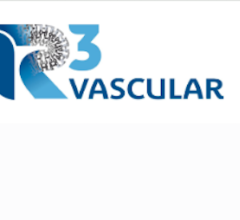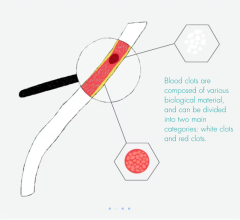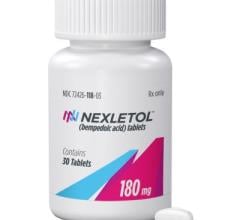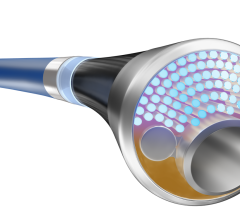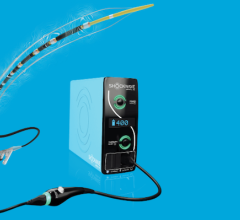April 30, 2007 — Aastrom Biosciences Inc. has announced it has initiated its U.S. Phase IIb prospective, controlled, randomized, double-blind, multicenter clinical trial to treat patients suffering from peripheral arterial disease (PAD). The company will use its Tissue Repair Cell (TRC)-based product to treat critical limb ischemia (CLI) in this patient population.
“This is a landmark study in terms of the number of patients to be enrolled, and the scientific rigor of its design,” said Anthony J. Comerota, M.D., F.A.C.S., F.A.C.C., Director, Jobst Vascular Center and Adjunct Professor at the University of Michigan. “If this therapy proves successful in these critically ill patients, it will have implications beyond the treatment of limb ischemia, which may apply to all ischemic diseases. This is an intuitively attractive treatment concept as it takes advantage of the patients' own cells to restore blood flow and to regenerate blood vessels in patients whose native arterial circulation is thought to be irreversibly damaged.''
Aastrom's double-blind study is expected to enroll 120 patients, randomized into two patient groups, to evaluate the safety and efficacy of the TRC-based product in the treatment of CLI. The treatment group will receive intramuscular injections of the TRC product into the affected limb; the control group will receive intramuscular injections with an electrolyte solution (without cells). Both groups will receive the standard of care appropriate for their medical condition.
Patients from both groups will be followed for a period of 12 months, post-treatment. The primary objective of the clinical trial is to assess the safety of the TRC-based product in CLI patients. Secondary objectives include assessing amputation rates, wound closure and blood flow in the affected limbs, patient quality of life, and the reduction of pain and analgesic use. Once the first 30 patients have completed the 12-month follow-up, Aastrom will analyze the interim results from these patients. Data gathered from this clinical trial will provide the scientific and statistical basis for an anticipated pivotal trial in the vascular regeneration area.
Aastrom initiated patient enrollment in this clinical trial after receiving Investigational New Drug (IND) approval from the U.S. FDA and Institutional Review Board (IRB) approval from several clinical sites. Aastrom will update its Web site as each clinical site, of the anticipated 20 sites, is initiated for patient enrollment.
This is Aastrom's second study evaluating the Company's TRC-based therapy in patients with critical limb ischemia. Aastrom's TRC-based product is also being used in a clinical trial being conducted at the Heart and Diabetes Center North Rhine-Westphalia in Bad Oeynhausen, Germany.
For more information visit www.aastrom.com.


 September 12, 2025
September 12, 2025 


